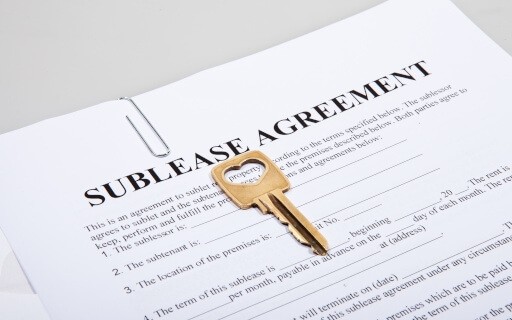
Renting out a condo can be a rewarding business venture. However, it’s not something you can just do on a whim. In most cases, the decision to rent out your condo won’t be entirely yours. Instead, it will also involve an accompanying condo association or homeowners’ association.
Before investing in a condo for rent, it’s important to understand the ins and outs of your association's restrictions, local laws and ordinances, insurance requirements, and more. Doing so will help you navigate the condo rental process successfully and earn a strong rental income.
Below, we’ve created the ultimate guide for renting out a condo to help you make informed decisions about renting out your property and maximizing your investment.
Pros and Cons of Renting Out Your Condo
When it comes to renting out a condo, you shouldn’t make impulsive decisions. With these kinds of properties in particular, the rental process can be quite complex. That said, you’ll want to consider all the pros and cons of renting a condo before making any commitments.
Before listing your condo for rent, consider the following advantages and disadvantages:
Pros of renting out a condo
Investing in a condo for rent has its fair share of financial benefits, including:
Less maintenance and management
When owning a condo, you’re only responsible for the space inside your unit. Everything else, including the condos’ exterior, outdoor space, and community amenities, is maintained and managed by your condo community’s employed maintenance staff. Unlike renting out a standalone, single-family home, condos minimize the stress of property upkeep, as you’re only responsible for maintenance tasks within your condo’s four walls.
Tax benefits
Tax benefits are another enticing factor in renting out a condo. You can usually write off maintenance and property management-related expenses when filing taxes. On top of that, you can also deduct interest on your mortgage and property taxes. Simply put, adding value to your property through repairs, renovations, and property management can make you eligible for deductions.
Asset appreciation
If you take good care of your condo over time, chances are it will appreciate in property value. The longer you hold onto the condo while it appreciates, the more wealth you can build. This is a smart long-term investment strategy if you plan to sell your condo down the road. If all goes well, you should be able to sell the condo for more than your original purchase price and walk away with a good profit.
Cons of renting out a condo
While renting a condo brings many benefits, it also comes with some drawbacks, such as:
HOA restrictions
Your respective homeowner’s association, or HOA, may present roadblocks for your condo rental. Many HOAs have strict stipulations regarding the number of rented units, lease lengths, applicant screening processes, etc. Depending on your association’s rules and regulations, you might not be able to get the most out of your condo rental. This is why it’s extremely important to learn these stipulations before investing in a condo for rent, as you might hit obstacles that affect your rental’s profitability.
Tenant issues
Regardless of the property type, tenant issues are always a risk when it comes to rentals. Whether they’re continuously paying rent late or damaging your property, an irresponsible tenant can be a huge stressor for a landlord. Putting your condo in the hands of someone like this will likely cause you significant stress and make you question whether renting your condo is worthwhile.
As mentioned above, renting a condo also involves navigating HOA rules, which tenants must also follow. These rules can cover everything from noise levels and pet restrictions to parking regulations and the use of common areas. This adds another layer of complexity compared to renting out a house, making renters more susceptible to rule-breaking.
Applicant screening is the best preventative approach for this situation, and it’s super simple with Apartments.com. When you list your rental with Apartments.com, you’ll get access to our suite of applicant screening tools that will help you find the best-fit renter for your condo. With our help, you can rest assured that your condo is in good hands!
Vacancies
Like problem tenants, vacancies are another risk you take when renting out a condo. Leaving a rental unoccupied poses many financial setbacks because the longer your property is vacant, the longer you’ll be responsible for mortgage and HOA fees.
Investing in marketing and tenant retention strategies is the best way to avoid long-term vacancies. If you already have a quality tenant, find ways to build a strong relationship with them so they’ll stick around. Or, if your current tenant is not renewing, use the weeks leading up to their departure to promote your property and maximize its exposure.
Understanding the Basics of Renting Out a Condo
As mentioned above, renting out a condo can be slightly more complex than other property types. With condo boards and HOAs to consider, as well as legal implications and insurance parameters, it’s important to have a full understanding of this rental landscape before you list a condo for rent.
Below, we answer some of the top-asked questions about condo rentals to ensure you understand all the basics of renting out a condo.
Can you rent out a condo?
The answer is yes, you can rent out a condo. However, it might not be as simple as renting out a single-family home. Owning a condo means you are subject to your condo community’s rules and regulations. These guidelines will range from parking and pet rules to, you guessed it, rental policies! So, before investing in a condo for rent, you should first check that your property is eligible to rent. There might be a chance your community does not allow it.
If renting is allowed, you’ll want to familiarize yourself with renting restrictions. What are the limits on the length of a lease term? Is there a cap on how many units can be rented at a time? Can renters bring pets? Make sure you have answers to all these questions before listing your property for rent. Then, you can make informed decisions about listing your condo and screening applicants.
Once you’ve selected a potential tenant, this individual will usually have to receive approval from your condo board or HOA as well. This approval process looks different for every condo community, as some boards will only ask for applications and fees, while others might request full-fledged applicant interviews. Whatever your requirements may be, make sure to disclose them to your applicant before getting deep into the screening process.
If all goes well with your selected applicant, you then should inform them about your condo community guidelines. The best way to do this is to include a condo rules clause in your lease agreement. This way, your tenant knows what they’re in for before signing on the dotted line.
What is an HOA community?
Being a part of a condominium means dealing with an HOA or homeowner’s association. An HOA is a legal body that governs a residential community by setting community standards. HOAs are typically run by a board of directors who enforce these community standards and collect reoccurring fees to pay for the upkeep of community facilities.
HOA fees can cost residents anywhere from $100 to $1,000. Your total HOA cost will ultimately depend on your condo’s location, size, and the average property values of the community. When renting out a condo, landlords can choose whether to pay the HOA fees themselves or include them in their tenant’s monthly rent. If they do include these fees in monthly rent, they must disclose this in their lease agreement.
What type of insurance do you need to rent out your condo?
Condominiums typically have a master insurance policy for the community’s shared areas and exteriors, such as elevators, hallways, roofs, etc. However, most condo boards require landlords to have their own insurance for their individual units, especially if they plan to rent them out.
If you plan to rent out your condo, you should enroll in a condo landlord insurance policy. Condo landlord insurance will protect your individual property from interior and exterior damages as well as your personal property and liability. With a comprehensive condo landlord insurance policy, expect the following coverage:
- Dwelling coverage: protects your condo’s interiors, such as wall finishes, floor coverings, fixtures, etc.
- Personal property coverage: protects your in-unit personal property like appliances or yard tools
- Liability coverage: protects you from legal or medical expenses in case a tenant or one of their guests gets injured on your property
- Loss of use coverage: protects you from losing income if your property becomes unlivable
- Other structures coverage: protects your property’s additional or attached structures like sheds or garages
You can also add landlord insurance for additional coverage, which many landlords include for loss of income coverage. This form of coverage protects you if your property experiences severe damage that causes tenants to relocate.
How to Rent Out Your Condo
Now that we’ve covered all the basics let’s discuss exactly how to rent out a condo. From advertising your property listing to screening applicants, renting out a condo is a multi-step process that requires some groundwork.
Create an appealing property listing
First things first, let’s talk about your property listing. When listing your condo for rent, you should highlight everything it has to offer with detailed property descriptions and photos. Highlight features such as updated appliances and community amenities – anything that might make your listing stand out to renters. Additionally, make sure your listing is clear and engaging. Provide any and all details a renter might need, like square footage, number of beds and bathrooms, etc. Be specific while maintaining an inviting and attractive tone to capture interest.
Set the right rent price
Price holds a lot of weight when renting out a condo. While charging too much might turn off prospective renters, charging too low will hurt your overall profit. The trick is here to find a pricing sweet spot using rent comparable reports.
Rent comparables, or rent comps, are properties in your area of similar size, number of bedrooms, bathrooms, and amenities. A rent comp report will show the performance of these properties, including how long they’ve been on the market, their pricing, and other information on current market conditions. Using these reports to price your condo will help you set a competitive yet profitable price that attracts quality applicants.
When you use Apartments.com’s suite of Rental Tools, you’ll gain access to rent comparables reports that will simplify the pricing process. Not to mention, you’ll also get insight into current rent trends that could affect your rental performance. We’re here to help you get one step ahead!
Find the right renter
Next, you’ll need to find the right renter for your rental condo. Assuming you’ve followed the past two steps correctly, you should be able to attract a pool of applicants who are a good match for your property. Of these applicants, you’ll want to select one who is reliable, meaning they’ll pay rent in full and on time, and respectful, meaning they’ll take care of your condo and its surrounding community. The best way to find a renter of this caliber is to conduct an applicant screening process.
As mentioned earlier, Apartments.com has tenant screening tools that simplify the vetting process. When using our platform, you’ll receive thorough background and credit check reports from TransUnion. These reports will help you identify a candidate’s potential red flags, getting you one step closer to finding the best-fit tenant for your condo. Other screening components will include proof of income, employment and rental history, and criminal record. All of this information should be enough to make informed decisions about potential occupants.
Prepare a comprehensive lease agreement
Once you and your condo board, if applicable, agree on a tenant, you’ll then craft a lease agreement. Here, you will outline all the terms and conditions your renter must abide by when renting your condo. This will include monthly rental costs, duration of the lease, property description, penalties for rule-breaking, and rules and regulations mandated by both you and your condo or homeowner’s association.
The lease agreement ensures your renter has a clear understanding of their obligations not only as your occupant but also as a member of the condo community. It also serves as legal documentation protecting both parties’ interests, helping to prevent potential miscommunications down the road.
List Your Condo for Rent with Apartments.com
Ready to list your condo for rent? You’ve come to the right place! Apartments.com is your one-stop shop for all things condo rentals. Using our suite of rental tools, you can learn market insights, list your property, and screen applicants – all in one place! Our platform makes it easy to reach a wide audience of potential tenants, ensuring your condo gets the exposure it deserves. Plus, with features like tenant background checks and online lease signing, you can manage the entire rental process seamlessly and efficiently.











